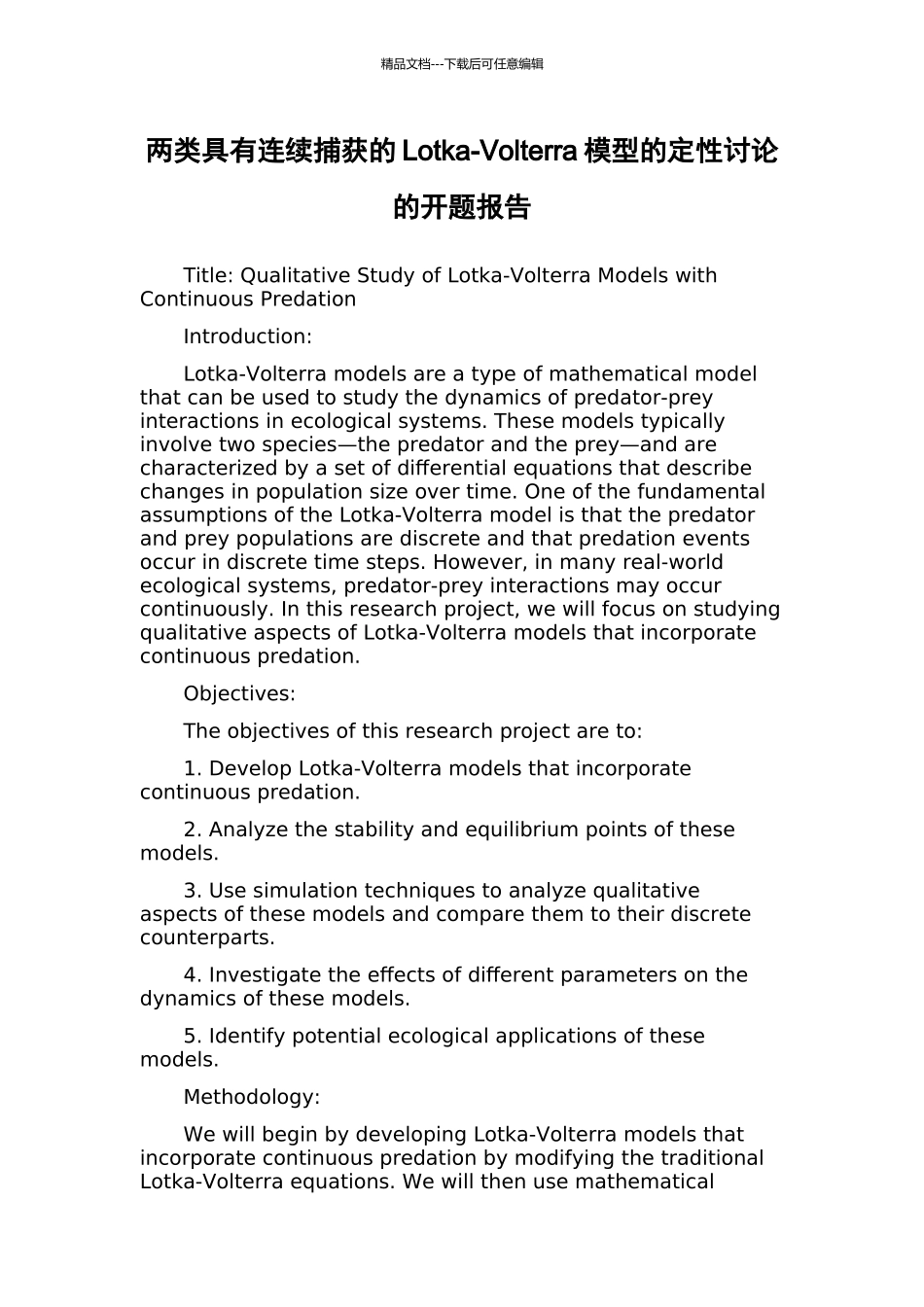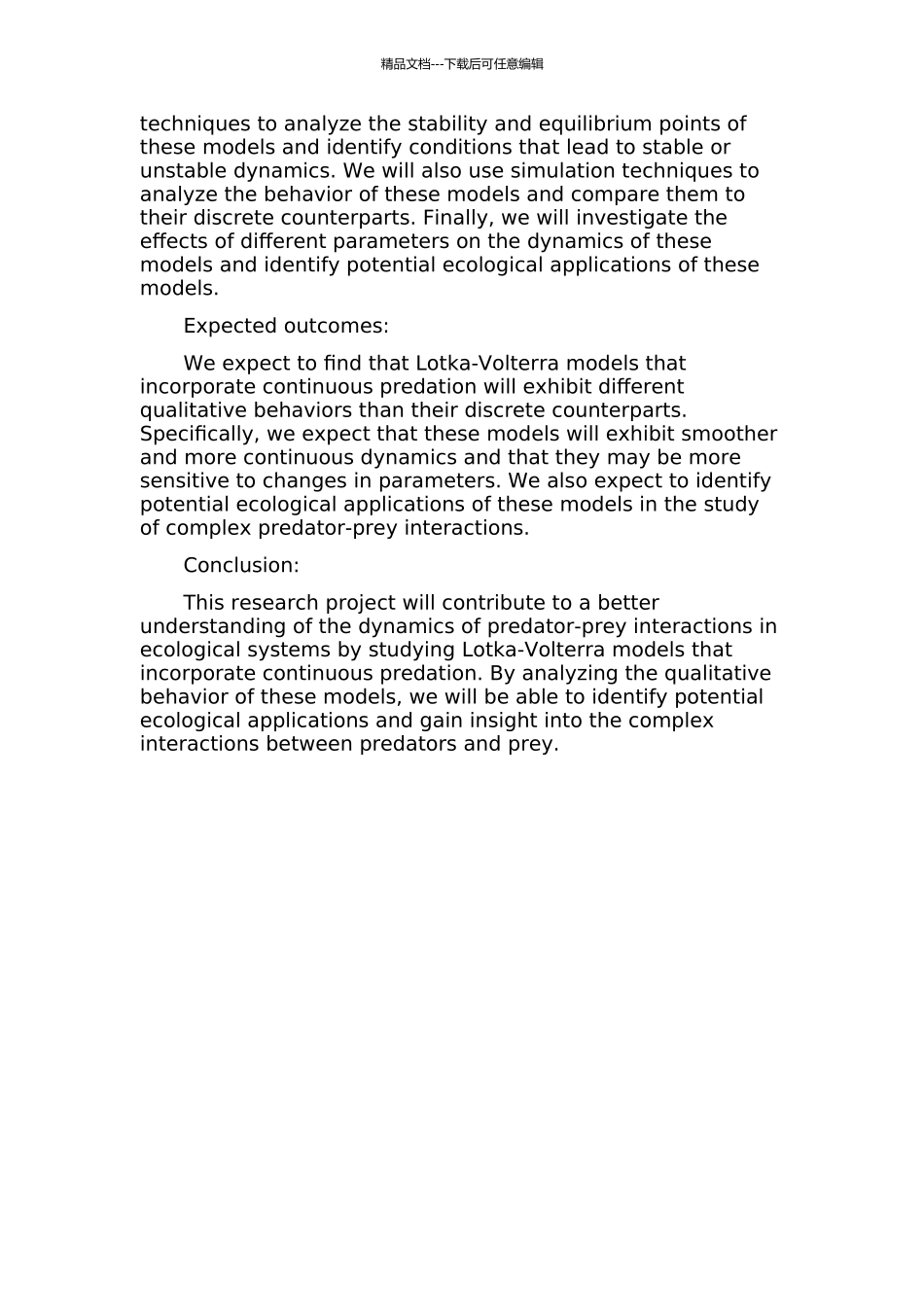精品文档---下载后可任意编辑两类具有连续捕获的 Lotka-Volterra 模型的定性讨论的开题报告Title: Qualitative Study of Lotka-Volterra Models with Continuous PredationIntroduction:Lotka-Volterra models are a type of mathematical model that can be used to study the dynamics of predator-prey interactions in ecological systems. These models typically involve two species—the predator and the prey—and are characterized by a set of differential equations that describe changes in population size over time. One of the fundamental assumptions of the Lotka-Volterra model is that the predator and prey populations are discrete and that predation events occur in discrete time steps. However, in many real-world ecological systems, predator-prey interactions may occur continuously. In this research project, we will focus on studying qualitative aspects of Lotka-Volterra models that incorporate continuous predation.Objectives:The objectives of this research project are to:1. Develop Lotka-Volterra models that incorporate continuous predation.2. Analyze the stability and equilibrium points of these models.3. Use simulation techniques to analyze qualitative aspects of these models and compare them to their discrete counterparts.4. Investigate the effects of different parameters on the dynamics of these models.5. Identify potential ecological applications of these models.Methodology:We will begin by developing Lotka-Volterra models that incorporate continuous predation by modifying the traditional Lotka-Volterra equations. We will then use mathematical 精品文档---下载后可任意编辑techniques to analyze the stability and equilibrium points of these models and identify conditions that lead to stable or unstable dynamics. We will also use simulation techniques to analyze the behavior of these models and compare them to their discrete counterparts. Finally, we will investigate the effects of different parameters on the dynamics of these models and identify potential ecological applications of these models.Expected outcomes:We expect to find that Lotka-Volterra models that incorporate continuous predation will exhibit different qualitative behaviors than their discrete counterparts. Specifically, we expect that these models will exhibit smoother and more continuous dynamics and that they may be more sensitive to changes in parameters. We also expect to identify potential ecological applications of these models in the study of complex predator-prey interactions.Conclusion:This research project will contribute to a better understanding of the dynamics of predator-prey interactions in ecological systems by studying Lotka-Volterra models that incorporate continuous predation. By analyzing the qualitative behavior of these models, we will be able to identify potential ecological applications and gain insight into the complex interactions between predators and prey.

